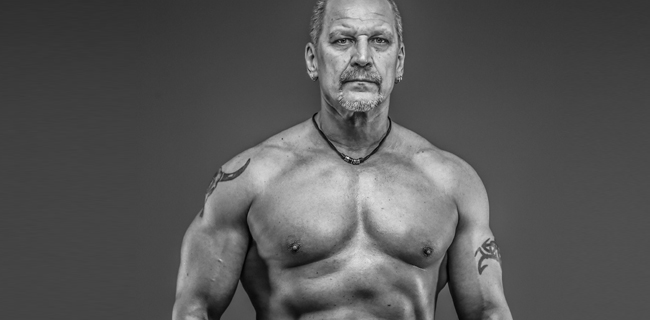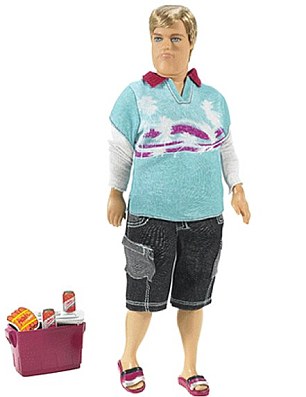Fact: 75% of all men will suffer some degree of hair loss by age 60.
Fact: 50% of all women will experience some hair thinning by the age of 40, three-quarters by the time they are 65.
This is particularly bad news for Baby Boomers who make up the 51-70 demographic [1946-1964].
According to Dr Asim Shahmalak, Britain’s most respected and best-known hair transplant surgeons, hair loss can have devastating psychological consequences.
“Men and women alike, although it is mainly men who suffer, go through a series of psychological stages when their hair thins, he says. Broadly speaking these can be characterized thus: Shock – Denial – Anger – Depression – Acceptance, not dissimilar to any other life-changing episode.”
He goes on to tell the story of Mark Oaten, then a rising political star, who became mired in a sex scandal.
“Mr Oaten did not condemn the media, nor point to the pressures of life in the Westminister bubble, as he might reasonably have done and many before him have.
Instead, in an unusual and highly thought provoking response, he laid the blame for his behavior squarely at the door of a mid-life crisis occasioned, he said, by the loss of his hair.”
I’m not making this up.
Writing at the time in a compelling dispatch for the Sunday Times, Mr Oaten identified the loss of his hair as the trigger behind the increasing anxiety in his personal and professional life as an MP.
“Any television appearance would result in a barrage of emails, not about the issues I’d raised but about my lack of hair,” he admitted.
“Whether supportive or not, they all asked what had happened to my hair.”
He went on, “It’s perhaps not surprising that I became more and more obsessed by its disappearance. For me it was a public sign that my youth had ended.”
The loss of hair for men and women can be deeply traumatic. And trauma, however hard to gauge, can influence both happiness and behavior. No one should underestimate the affect hair loss can have.
‘Baldy’, ‘slaphead’, ‘bone dome’, all harmless banter, right? Hardly. The language of the schoolyard extends well beyond the boardroom.
I’m hardly one to argue in favor of political correctness, but people need to get a grip on the essential vulnerabilities human beings carry, especially things like hair loss, over which they have no control.
Self-confidence is of paramount important to well being. And once that confidence goes, it can be hard to regain, leaving both professional and personal life badly exposed.
According to Dr. Shahmalak, patients readily admit to worrying constantly about their thinning hair and tell him about the impact on their social lives:
“Innocent comments can be misinterpreted, the eyes of their friends seem drawn to their temples, everyone else has a full head of hair. Why not them? I don’t exaggerate.”
In a society where image has become so important, hair is crucial.
It also can be tougher for modern men than for previous generations because of the high number of mid-life relationship break-ups and divorce. This coupled with greater independence for women, and men are now under pressure to keep looking younger in later life.
This scenario isn’t without crosscurrents, however.
Having very short hair is often seen as more masculine – and there are some suggestions that baldness is linked with heightened virility.
There are plenty of poster-boy role models for the nervously-thinning male.
But if people fear the worst about getting bald, it can become part of a wider mid-life crisis, says business and social psychologist, Michael Gutteridge.
If a man has strongly identified with his appearance, then losing his hair can feel like a threat to his identity as it means he stops looking like the person he thought he was. This is more than just vanity.
Dr Gutteridge says that it’s becoming increasingly common for business leaders to have cosmetic surgery, reflecting their need to send a visual message that they are still young and energetic.
Politics comes to mind.
Did you know that in the United Kingdom, no bald headed party leaders have won a general election since the television era began, perhaps reflecting the potent cocktail of associations that connects hair with power, attractiveness and vitality?
Even businessman and presidential candidate, Donald Trump, made reference to it when he stated, “it’s extremely important for all men to maintain a good head of hair.”
As for his hair, I’ll abstain from further comment.
The Future Looks Good
Barry Stevens, general secretary of the Trichological Society, says in the foreseeable future there will be an effective way of preventing baldness using “tissue engineering” and cloning technology.
This would mean cultivating hair-growing skin from an original sample, which would be grafted back onto the scalp.
“This isn’t pie in the sky, there are tens of millions being pumped into research into this,” says Mr. Stevens. But once an effective technique is developed, he forecasts that this will become a massive industry.
I could have guessed that myself.
Mr. Stevens has been working in the hair industry for four decades and he is strongly dismissive of much of the hair loss merchandising on the market, particular products that claim to “re-grow” vanished hair.
Hairr transplants work for some people, he says, but little else is worth the money.
“People are getting conned every day, charged thousands they can’t afford, going to hair clinics where they’re sold magic pills and creams that don’t work. I’m sickened by much of the industry, it is corrupt, full of charlatans.”
“If there were a safe and effective drug for re-growing hair it would be available from doctors, rather than adverts in the backs of newspapers,” he says.
But there is certainly a massive market for such hair revitalization, with an estimated 5.5 million websites dedicated to hair products.
This is because even though men might say they don’t care, losing hair can take the scissors to their self-confidence – and they’ll spend a great deal of money trying to turn back the tide, says Mr. Stevens.
It might not be apparent for many years, but the 100,000 hairs on a youthful male head begin to reduce in number almost as soon as men reach their teenage years.
The rate and extent of the hair loss is governed by genes, and Mr. Stevens says it’s a myth that men should look to their mother’s family for an indication of how their hair might recede.
Like hair color, patterns of balding can be inherited from either side of the family and from several generations back, which is why brothers can have completely different amounts of hair.
But what should a balding man say to a hairdresser? Honesty and a good close crop. The comb-over or any other cunning coiffure is not going to fool anyone.
Comments from men around the globe taken from an article published recently in the BBC:
I used to have long hair all my late teens and twenties and early thirties. So to discover it thin on top and receding a little, I have now shaved it with a razor. People are used to it now, but deep down I hate it and am depressed about it. I don’t want long hair for my age, but just a good head of hair so I don’t have to shave all the time. I don’t like any photos with me in, so I guess it’s a major problem with me. I have less confidence and think I’ll remain single.
Andy, Scotland
I used to have long flowing locks a la Jim Morrison, Kurt Cobain in the ’90s now at 29 I’m a virtual skin head. I put it down to too much hair dye, late nights and a diet of fags and black coffee in my late teens and early twenties. I used to get far more abuse walking down the street because of having hair than I do now. A bald head makes you look well’ard!
Rob, Norwich
Isn’t hiring rent boys rather an odd way to assert your masculinity?
Chandra, London, England
Had a ponytail for a long time, then my hair began thinning on top. Created my own ‘Millenium Dome’ at the start of 2000, clipping it short all over and bald on top. Raised cash for charity too. It’s much easier to look after, I can trim it myself without small-talking with hairdressers about holidays, and it doesn’t bother me at all, though it gives my mates much amusement. Also it’s something to rub when you need to think hard! But you need a baseball cap when it’s very hot or cold. Anyone going bald – just get over it, it’s no big deal!
Jason Mills, Accrington, UK
I have two sons 20 and 23, both lost almost all their hair in their teens as did their grandfather. It hasn’t affected their attraction to the opposite sex, so I think these precious males have to accept that they just aren’t as attractive in middle age as they were in their youth – with or without hair.
Janet Georghiou, Windsor
As a balding man of 25, the concept of having a’solar panel for a sex machine’ on top of my head certainly appeals!
John Ferguson, Edinburgh
I’ll admit that I am slightly torn about the issue. Although part of me would love to salvage the few strands of hair left on my head and even get a few extra ones, at the end of the day, this ugly mug I was born with is mine, whether I like it or not. And I am not entirely convinced that a full head of hair would magically transform me into any kind of Adonis.
Steven, Shrewsbury
I was bald by the age of 21. Many women find it sexy, I find it convenient to clean-shave once a week rather than pay ridiculous amounts of money to have a hair-cut once a month. Never got me down, since I was never a stud so I have built my confidence based on my brains, not on my looks. Never really liked my hair anyway since it was curly and unmanagable.
Elias Kostopoulos, Athens, Greece
I’ve recently joined the bald gang as I approach 30. I had long hair for over 10 years, something crucial to a fan of heavy metal, but like life, it’s something to accept, deal with and move on. Buy yourself some hair trimmer and get with enjoying life, you ain’t dead yet!
Dave, Southampton
I started to lose my hair when i was in my early 20’s. I used to have a great head of hair and first noticed it thinning at the front when I was 21. By the time I started Uni at 23 it had become noticeable. Friends and family were kind saying it was my imagination. It really upset me and i used to wonder why it had started so young with me. I was always conscious of it and it nearly destroyed me. One day at around 27 years old i shaved it and i felt relieved. I did not have to hide it any more and was out in the open. I do think that it has harmed my chances with girls. I am not bad looking and never had to try too hard. Now I’m bald I have to try ten times harder than I used to. I have to develop all kinds of strategies. Its hard work!
Richard, London
I have two sons. One 48 years with a mass of hair. The other 39 years with a bald head. Their father/uncle/grandfather/grandmother/aunt/myself all have very thick hair so for some reason my youngest son has different genes. I must add that he has not had a problem with his lack of hair, unless he hides it well.
Doreen Whittaker, Surrey
I started losing my hair very early on, in my early 20’s. It did have a depressing affect on me, as I thought that I was no longer as attractive as I had been. Looking back, I can’t believe what an arrogant and vain prat I was. The turning point finally came when I bought some electronic clippers and shaved it all off. I felt better, there was no chance of me resorting to a comb-over and my self-esteem went up again. I’ve never looked back since then. And I’m getting married next year!
Marc Jones, Chingford, London, UK
I agree that we must be honest about baldness. You can’t really fool anyone. Sure it is great to have a full head of hair, but most men don’t after a certain age. I’ve seen all sorts of silly cures here (Malaysia) and nothing works, snake oils and all sorts. The key is to look at yourself in a positive way … be bold and bald … some find this attractive! It is also far more comfortable, a close crop makes me feel better than a length of locks. There is plenty of successful bald men, just stay away from british politics though.
Bill, Malaysia
It’s perfectly acceptable for a man to lose his hair, whatever his age…. provided he keeps what’s left very short. The men that attempt to cover it up, just highlight the fact and draw attention to it! A lot of men look more attractive with a shaven head.
Rachel, Southampton
What an absolute load of tosh, using losing ones hair as an excuse for insecurity. I started losing my hair in my early 20’s and just accepted is as part of life. It’s caused no crisis the conscious effect it had was it made me go for a shorter hairstyle. Now some 30 years later that I’m almost totally bald I just have my remaining hair cropped every few weeks. People who have ‘issues’ with hair loss are, in my opinion, using the hair loss as an excuse for a deeper insecurity.
Paul Ostermeyer, Milton Keynes, UK
My partner has a bald head and looks better now than he did as a youngster. I find it very attractive in a man. It’s a bold statement and although not always a choice for men, gives them more masculinity to their image. If your bald, don’t cover it up. There are lots of women like myself who adore the look!
Angela Ross, Sandhurst Berkshire
At 49 my hair is still long and thick. I have the most negative comments about it from balding or bald males. Do I care – nah!
Martyn Hlman, York
Summary
In my world, having a full head of hair pales in comparison to having a full load of cash. Financial security renders the issue moot. And while having both is better, I have never once heard any woman complain about her husband’s hair loss when travelling on a private jet.
Furthermore, when assessing a dating candidate, most women I know look at a man’s financial shape, followed closely by his physical condition, and pretty much ignore the rest.
In the end, they just don’t care enough to make a difference. In fact, a little hair loss may be just what the doctor ordered as it will make whatever the woman feels a bit insecurely about balance the scales.










